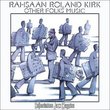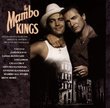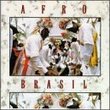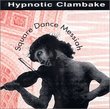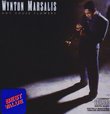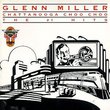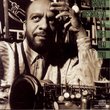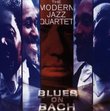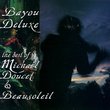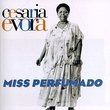| All Artists: Rahsaan Roland Kirk Title: Introducing Roland Kirk Members Wishing: 4 Total Copies: 0 Label: Grp Records Release Date: 5/19/1998 Genres: Jazz, Pop Styles: Modern Postbebop, Bebop Number of Discs: 1 SwapaCD Credits: 1 UPC: 011105082129 |
Search - Rahsaan Roland Kirk :: Introducing Roland Kirk
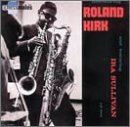 | Rahsaan Roland Kirk Introducing Roland Kirk Genres: Jazz, Pop
This 1960 session was the first on which Kirk revealed his extraordinary ability to play multiple saxophones simultaneously, adding the exotic manzello and stritch to his tenor to simulate a reed section. He's joined on th... more » |
Larger Image |
CD DetailsSynopsis
Amazon.com This 1960 session was the first on which Kirk revealed his extraordinary ability to play multiple saxophones simultaneously, adding the exotic manzello and stritch to his tenor to simulate a reed section. He's joined on this Chicago recording by excellent if underrated local sidemen who shared some of his unusual prowess. Ira Sullivan, a fine bop journeyman who had played with Art Blakey's Jazz Messengers, had already mastered the unusual double of trumpet and tenor saxophone, with his own voice on each instrument, while the bassist Donald Rafael Garrett would later play bass clarinet with John Coltrane. Even the keyboard player, William Burton, doubles here on piano and organ. The music is hard bop at its most soulful, with Kirk's strong gospel and blues roots evident on originals like "The Call" and "Spirit Girl." This recording captures him as he was rapidly developing into one of the most fluently creative tenor soloists in jazz. --Stuart Broomer Similar CDs
Similarly Requested CDs
|
CD ReviewsThe birth of a genius JEAN-MARIE JUIF | BESANCON France | 09/12/2001 (5 out of 5 stars) "Rahsaan Roland Kirk (1936-1977),blind man,happened to be one of the greatest voices in the history of jazz.He played all kinds of saxophones,including of course tenor sax,but also manzello, strich, flutes,and was able to play simultaneously two or three horns.His playing was one of jazz's most original.He played in Charles Mingus band ("oh yeah" on Columbia),and recorded until his death,at 41,although he suffered a stroke that let him paralized.In his last record,"boogie woogie string along for real" on Atlantic,he invited an old-time blues pianist, Sammy Price,and recorded magnificent tune with him (Tiny Grimes was also in the band!!).THis record, the first he made under his name,shows Roland Kirk teaming with the underrated Ira Sullivan (trumpet and tenor sax),bassist Don Garrett (who will later play with Coltrane),pianist William Burton (or Ron,or Rahn Burton,who will often play with Kirk,and who recorded a beautiful album on DIW some ten years ago),and drummer Sonny Brown,who's way of playing reminds me of my friend Sam Woodyard.This is a great hard bop session,including a standard ("our love is here to stay),and blues and gospel tunes that are very reminiscent of Mingus and Blakey.William Burton shows that he can play great things on organ too.Real hard swinging music which will remind you of some Charles Mingus,Art Blakey or Jackie McLean albums of the same time.Listen to the minor keyed "soul station",which includes a phrase from Horace Sliver's "doodlin'",and listen to Kirk's solo on this tune;it could have been played by Hank Mobley .Listen to "the call" or "Jack the ripper";at this time,Kirk was only 24 years old.Try to remember the way Bird played in 1944,for exemple.Kirk was a true genius,and this album is a magnificent proof of that.Speaking of swing,the world has rarely been better used than to describe the atmosphere of this album.I never could classify jazz in N.O.,mainstream,swing,bop or free;to me,JOhn Coltrane and Skip James play exactly the same thing (if you're not sure,listen to Coltrane's "Alabama",then Skip's "hard time killing floor blues");Roland Kirk is just an actor of jazz history,a member of the Great Black Music,who could have played with Duke as well as with Albert Ayler.An incredible musician,proud of his roots, the blues, and exploring the future,as every good jazz musician did." Wonderful JEAN-MARIE JUIF | 11/12/2000 (5 out of 5 stars) "This is a great jazz album, it is either his first or maybe sophmore effort but his style(s)was fully formed. It is just a very enjoyable album, it makes you feel good (especially when he lets off his siren)the same way Thelonious Monk does, just exudes good vibes..." NEVER loan out your music. Money, maybe; Music, NO! Jay Brown | WATERBURY, CT, US | 12/29/2009 (5 out of 5 stars) "I loaned this record out back in '69 and didn't see it again until a few years ago. I was surprised to find it still in print. The music, however, is most memorable, even after all this time..... After a slow, wandering introduction, "The Call" blasts forth in three-part harmony, two of which is Kirk's. The call is long, eventually giving way to Kirk's opening solo,on manzello,then tenor. I don't remember the complete personnel, but there are good solos all around. "Our Waltz" is warm and beautiful, as is Kirk's lead-off tenor solo. A part of the theme introduces each solo. "Our Love" is equally beatiful, but a ballard. "Spirit Girl" is reminiscent of
Mingus's "Better Git It In Yo' Soul"; the ol' stomp-down, jammin' religious revival. Four notes from the piano intros the horns in unison (3 sets of five notes). Kirk's tenor (front solo) is well up for it. Good solos by all, as well. The piano, along with Kirk's siren opens and closes "Jack The Ripper", a "catchy tune", but complicated for one horn, much less three. But that's Roland Kirk." |

 Track Listings (6) - Disc #1
Track Listings (6) - Disc #1